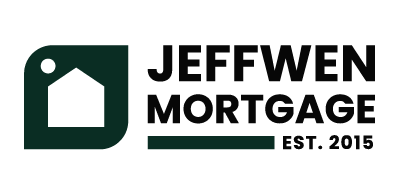These are for home purchases that exceed the conforming loan limits set by the Federal Housing Finance Agency (FHFA). Jumbo loans are used for more expensive properties.
Understanding Jumbo Loans: What They Are and How They Work
A jumbo loan is a type of mortgage designed to finance high-value properties that exceed the conforming loan limits set by the Federal Housing Finance Agency (FHFA). These limits vary by location but typically fall between $726,200 and $1,089,300 for single-family homes in most areas of the United States. Jumbo loans are crucial for those looking to purchase higher priced homes or properties in highly competitive real estate markets.
Key Features of Jumbo Loans
- Higher Loan Amounts: Unlike conventional loans, jumbo loans provide financing options beyond the standard limits, making them ideal for purchasing higher cost real estate.
- Strict Qualification Requirements: Borrowers must meet stringent credit score requirements (usually 700 or higher) and provide comprehensive documentation to prove their financial stability.
- Larger Down Payments: Lenders typically require down payments of 20% or more for jumbo loans, although some may accept as low as 10% with strong borrower credentials.
- Interest Rates: Historically, jumbo loans had higher interest rates compared to conforming loans due to the increased risk. However, competitive market conditions have narrowed this gap in recent years.
- Cash Reserves: Lenders often require borrowers to have significant reserves, sometimes equal to several months’ worth or a year of mortgage payments, to ensure they can cover the loan in the event of any financial distress.
Advantages of Jumbo Loans
- Access to High-Value Properties: Jumbo loans make it possible to buy homes in high-cost areas where property prices exceed conforming loan limits.
- Flexible Terms: Borrowers can choose from various loan terms and structures, including fixed-rate and adjustable-rate mortgages (ARMs), to suit their financial situation.
Disadvantages of Jumbo Loans
- Tougher Approval Process: Due to the larger loan amounts, lenders impose stricter qualification criteria, making it harder to secure a jumbo loan.
- Higher Down Payment and Reserve Requirements: The need for a significant down payment and cash reserves can be a barrier for some borrowers.
How to Qualify for a Jumbo Loan
- Strong Credit Score: Aim for a credit score of 700 or higher to increase your chances of approval.
- Low Debt-to-Income Ratio (DTI): A DTI ratio below 43% is ideal, though some lenders may have more stringent requirements.
- Adequate Income and Assets: Demonstrate a stable and high income, along with substantial assets and cash reserves.
Conclusion
A jumbo loan is an essential financial tool for homebuyers looking to purchase luxury properties or homes in high-cost areas. While they come with stricter qualification requirements and higher financial obligations, jumbo loans offer the flexibility and access needed to secure high-value real estate. To increase your chances of approval, maintain a strong credit score, keep your debt-to-income ratio low, and ensure you have sufficient income and assets.
By understanding the intricacies of jumbo loans, you can make an informed decision and successfully navigate the path to owning your dream home.
